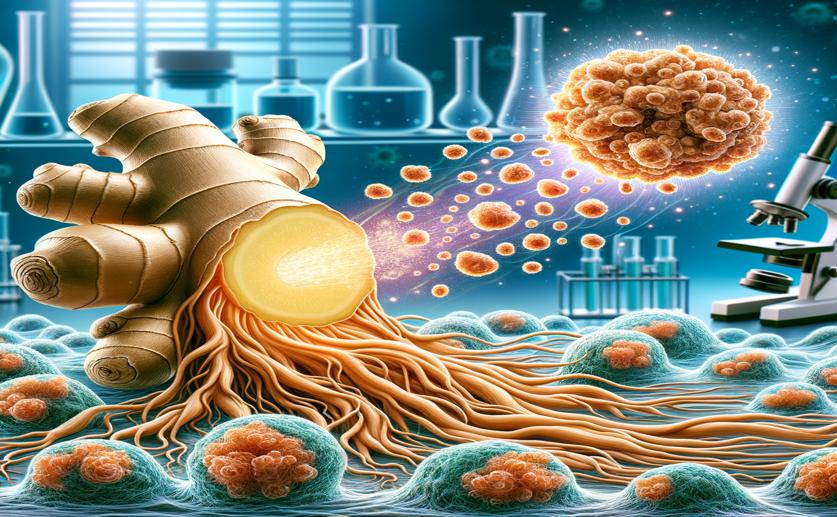
Ginger Root Compounds Effectively Stop Growth of Colon Cancer Cells in Lab Study
Jim Crocker
17th May, 2024

Image Source: Natural Science News, 2024
Key Findings
- Researchers at Oklahoma State University found that ginger juice can selectively inhibit the growth of colon cancer cells
- The bioactive compound 6-gingerol in ginger specifically targets cancer cells without harming normal cells
- 6-gingerol induces cell cycle arrest in cancer cells, preventing their growth
References
Main Study
1) Ginger Root Bioactive Compounds Specifically Inhibits Growth of Colon Cancer Cells in Culture.
Published 17th May, 2024
https://doi.org/10.1177/11786388241231163
Related Studies
2) Chromosome aberrations and cancer.
Journal: Science (New York, N.Y.), Issue: Vol 254, Issue 5035, Nov 1991
3) Microenvironmental regulation of stem cells in intestinal homeostasis and cancer.
4) Nonlinear reduction in risk for colorectal cancer by fruit and vegetable intake based on meta-analysis of prospective studies.



 15th May, 2024 | Jenn Hoskins
15th May, 2024 | Jenn Hoskins